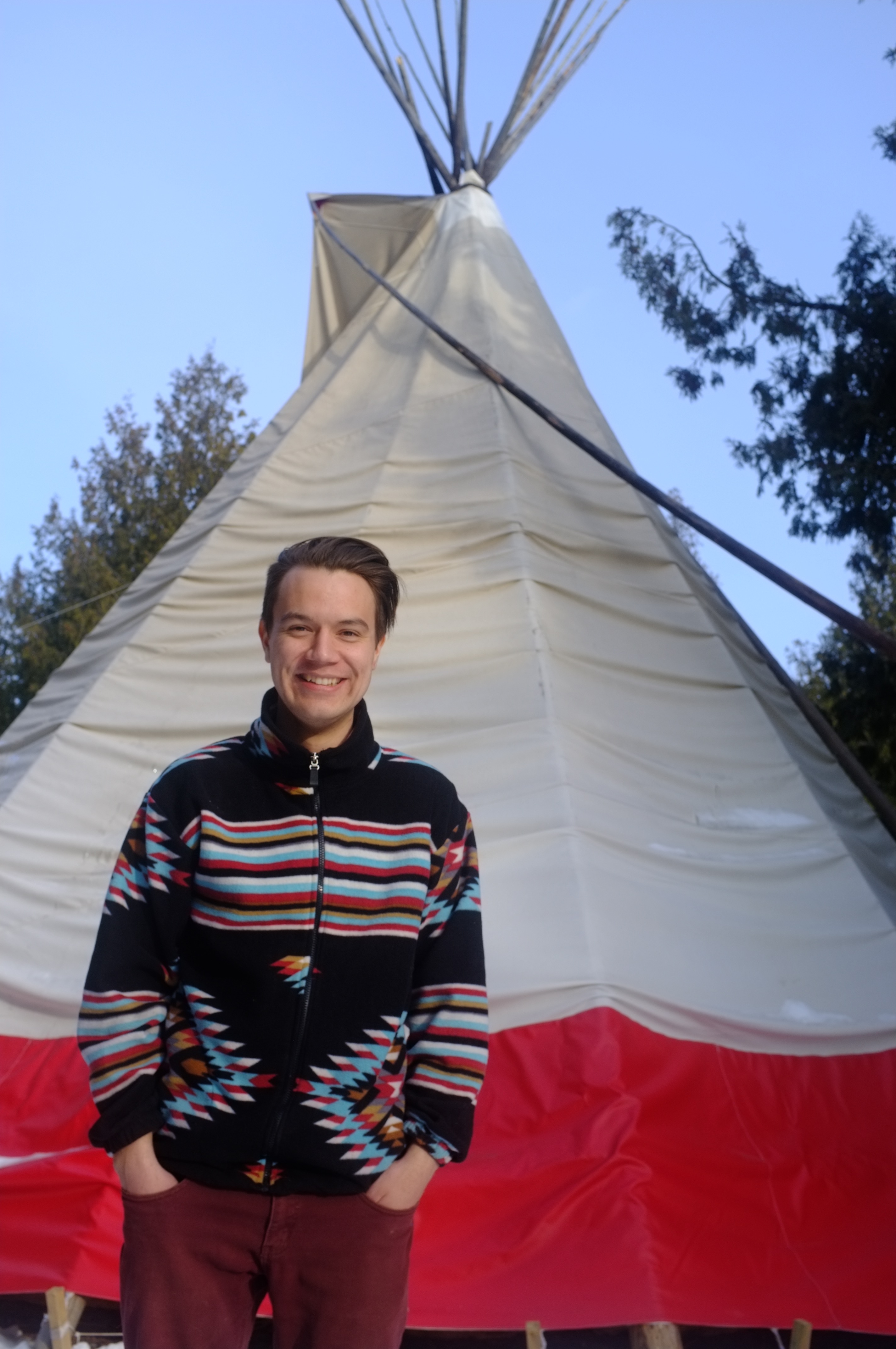
This week, as part of the Equity Commissioners series, Arthur spoke with Brendan Campbell, the Indigenous Students Commissioner at the TCSA.
Campbell argues that Equity Commissioner positions are somewhat unique to Trent, as a number of universities across Canada do not have this kind of position within their student unions.
Additionally, Campbell notes that his particular position as an Indigenous Students Commissioner is important because of the very real and continuing challenge of colonialism.
He mentions that indigenous peoples have to empower themselves in two ways: the first is the empowering and strengthening of their own communities and systems of governance; the second lies in challenging the colonial institutions.
Trent University, for example, is a settler institution on indigenous land, and although Campbell recognizes that there may be people who identify with what Trent stands for, his goal is to ultimately challenge oppressive forms of colonialism and to include the indigenous voice within the TCSA and the wider university community.
Campbell has served as a bridge between the First Peoples House of Learning (FPHL), the Indigenous Studies Department, and the Trent University Native Association (TUNA) with the TCSA in the initiative to include a mandatory 0.5 credit of an Indigenous Studies Course for all Trent graduates.
This new policy is part of the Truth and Reconciliation Commission Recommendations.
His involvement stemmed from his participation in the National Aboriginal Caucus in the Canadian Federation of Students, where he spoke to students from Winnipeg University, where the mandatory 0.5 credits have already been implemented.
Campbell feels that for such an initiative to take place, the initial discussion should occur within the safe space of the indigenous community.
The next step is to bring the motion to Senate and to engage in a community discussion. Campbell is also pushing for the mandatory course to be specific to the field of study, meaning that it would be cross-listed with other departments in order to enable academic freedom while decolonizing the institution.
An indigenous course would provide students from all disciplines with an understanding of Canada’s colonial history and its implications within their chosen field of study. Additionally, credit requirement for Indigenous Studies classes is a way to address privilege.
As part of his Equity Commissioner activities, Campbell has been working closely with the Trent International Program (TIP).
At the beginning of the semester, he was a Cultural Assistant at TIP Camp, the international students’ orientation event, noting that it is important for newcomers to recognize whose traditional territory they are sharing.
He also hosted a collaborative event with TIP in the tipi to bridge cultures and to provide a space for international students, as he notes that international students often have a different understanding than Canadian students do in terms of approaching indigenous students and spaces.
In his capacity as Indigenous Students Commissioner and Fire Keeper, Campbell was also involved in the FPHL’s Indigenous Space Campaign with the intent of addressing the continuous disrespect of indigenous space.
Campbell has also hosted an event about allyship, in which elders and academics spoke in order to lay out the tools for students to enter indigenous spaces.
He hopes to also promote indigenous identity on campus in its various forms and manifestations, as many students do not fit the stereotypical image of indigenous peoples or the commonly understood forms of racialized and marginalized communities.
Being an ally in the indigenous context means recognizing the importance of indigenous spaces to indigenous peoples, and the different lived experiences and forms of oppression related to indigenous peoples. An ally is meant to strengthen the voices of those who are marginalized.
Additionally, he wants to host a workshop that challenges what it means to be Canadian, and transform the conventional national identities in a positive manner by highlighting recent positive changes.
He hopes to include other Equity Commissioners to bring other perspectives. Campbell also hopes to provide a safe space for students who have been marginalized or oppressed to share their stories unapologetically.
In addition, Campbell has chosen to sit on committees where an indigenous voice may be particularly needed. He sits on the Grocery Assistance Committee because he recognizes that there are many indigenous students in the community that, despite the availability of scholarships and support from the FPHL, have limited financial means to ensure food security on a day-to-day basis.
The Undergraduate Senate is a subcommittee of the University Senate. Campbell chose to sit in this committee in particular because of the changes occurring in the Indigenous Environmental Science Studies program, and wants to represent an indigenous voice, as the voices within the committee are largely of a western and secular mindset.
Lastly, Campbell also sits on the Clubs Funding Committee, not because of any decolonization process that may occur within the committee, but because he hopes to gain a better understanding of the way that application and funding processes work in regards to clubs and groups at Trent.
Although he cannot vote on decisions related to the clubs and groups that he has helped start at Trent, the Clubs Funding Committee provides insight as to the requirements that clubs at Trent must meet.
During his time at Trent, Campbell helped initiate the Trent Indigenous Environmental Student Society and the German Language Group Trent.
From his role as an Equity Commissioner, Campbell has learned to feel comfortable to voice his concerns and opinions in many settings, and has acquired a sense of responsibility in driving positive change.
As Brendan Campbell notes, “This year will be maybe a big year of change for Indigenous Students.”
